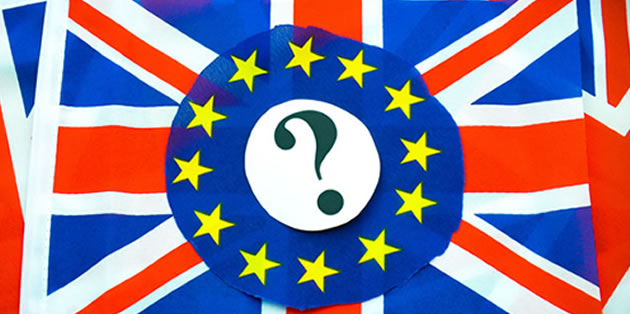The current week has seen the UK Referendum situation ratchet up its profile, as in addition to the ‘In’ and ‘Out’ campaigns being officially started this week, there have also been a number of high-profile predictions over what could happen in the event of a ‘Brexit’ situation.
Against the previous week’s Pound to Euro (GBP/EUR) movement, the UK currency has actually managed to make sustained gains against the Euro overall over the past 5 days.
Muted Opening to the Week with Neutral UK Comments and Damaging Greek Activities
Unlike last Monday, where the global markets were rocked by the revelation of the ‘Panama Papers’, Monday of this week was fairly lacking in terms of direct UK-EU Referendum developments.
Offering ‘In’ campaign support was Mark Boleat, the Chairman of the Policy and Resources Committee of the City of London.
Writing in City A.M. at the beginning of the week, Boleat made an effort to dispel the previous sensational claims of the consequences of the June 23rd vote made by both sides. Boleat made this argument by stating that:
‘There are few simple facts for people to get their heads around and you can’t easily write the arguments for each side on one side of paper. It is clearly absurd to believe that, if Britain left the EU, there would be no regulation. It is also incorrect to assert that, if Britain left the EU, there would be no scope for reducing regulation.’
Overall, Boleat cited comments from other financial trade associations when making his case to remain in the EU, pointing out that none of these organisations thought a ‘Brexit’ would be good for the UK economy.
Elsewhere, the ‘Out’ campaign was given an unexpected piece of ammunition by events concerning the Greek Prime Minister, Alexis Tsipras.
In response to apparent International Monetary Fund (IMF) pressures to force Greece to adopt harsh austerity measures, Tsipras signed a pact with Portuguese PM Antonio Costa to deny austerity measures in direct defiance of the IMF’s efforts.
While not directly linked to the UK, ‘Leave’ campaigners quickly seized the news as supposed proof that the European Union system was chaotic and unviable.
Finally, the distribution of the controversial pro-‘In’ leaflets by the UK Government began on Monday, something that former Conservative ministers John Redwood and Owen Paterson said would boost the efforts of the ‘Out’ campaign due to the negative stigma attached to them.
IMF Intervention Dominated Headlines on Tuesday
Tuesday saw one of the world’s largest financial institutions, the International Monetary Fund (IMF), weigh in on the Referendum debate as part of its World Economic Outlook.
The global predictions were mainly dovish, but more specifically, the IMF forecasted that ‘severe damage’ would occur to the UK economy if the nation left the EU.
This was welcomed by Chancellor George Osborne but scorned by ‘Out’ campaigners, who saw the announcement as evidence of a bias within the IMF.
In other news, former Labour Foreign Secretary David Miliband also voiced his concern over a ‘Brexit’, stating that such an outcome would severely weaken the UK.
The Pound rose strongly against the Euro on Tuesday, due to a better-than-expected outcome for inflation in March.
Announcement of Official ‘In’ and ‘Out’ Campaigns Sparked One-Sided Argument on Wednesday
Wednesday was technically the biggest day of news for the UK Referendum, as the Electoral Commission announced which two parties would official represent their respective arguments – Britain Stronger in Europe and Vote Leave.
Due to the lack of competition, this announcement sat well with the ‘In’ group, but an argument soon broke out between vying ‘Leave’ factions, including Leave.EU and Grassroots Out.
Other news concerned the still-controversial Government-produced leaflets; owing to a previous online petition, it was announced that the leaflets themselves would be debated by MPs on May 9th.
For the ‘Out’ campaign, Chair Gisela Stuart called the Eurozone a ‘ticking time bomb’, which would generate 18% tax increases over the currency bloc in the future due to economic instability.
Labour Leader Took to the Stage Yesterday to Speak in Favour of ‘Remain’ Vote
The main piece of UK Referendum news yesterday came from Labour Leader Jeremy Corbyn, who voiced his official support for the ‘In’ campaign with a speech.
In addition to speaking in favour of reforming the EU from within, Corbyn also warned that the Conservatives would harm the nation’s workers if they remained in power after an ‘Out’ vote.
Spectators were mixed on Corbyn’s words, with some praising the MP’s honesty and others remaining sceptical due to his previous opposition to EU integration.
Elsewhere, the Bank of England (BoE) voted to leave the UK interest rate at 0.50% and continued to warn of the uncertainty and instability that would likely increase on the run-up to the June 23rd vote.
Official Start to Both Campaigns Today, Uncertainty Awaits before June 23rd Vote
Today’s sole piece of UK Referendum data has been that with the official campaigns chosen, the actual campaigning process itself is now officially underway.
That’s it for the UK Referendum roundup so far today, but we’ll be back next week with all the latest UK-EU news to keep you up to speed with the situation as it unfolds.
The Pound Sterling to Euro (GBP/EUR) exchange rate was trending in the region of 1.2556 and the Euro to Pound Sterling (EUR/GBP) exchange rate was trending in the region of 0.7966 today.



